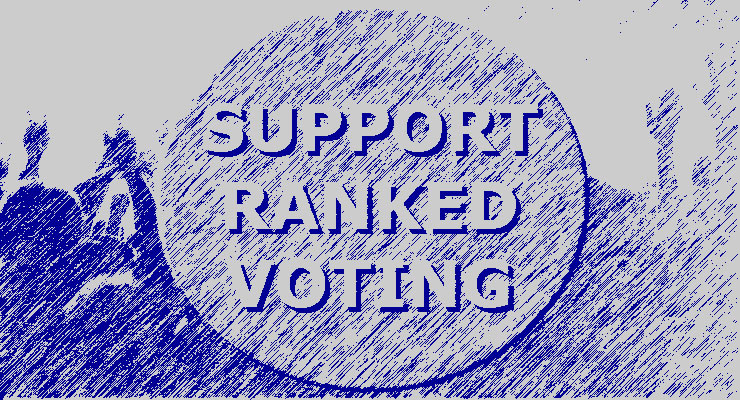 There was an interesting new post on the subject of ranked voting published at TheStreet. Take a look at this excerpt:
There was an interesting new post on the subject of ranked voting published at TheStreet. Take a look at this excerpt:
For Cuban, who believes that the two-party system is not fair and does not represent a large part of the electorate, the ranked-choice system is the lesser evil. He just encouraged the people of Nevada to vote in favor of this proposal.
“Facts. If you live in Nevada, vote Yes to Question 3. Pass it on …” the billionaire posted on Twitter on Nov. 5. He then defended the system using a food metaphor when a user pointed out to him that the ranked-choice voting was “unnecessary and confusing.”
The original tweet can be seen here:
Facts. If you live in Nevada vote Yes to Question 3. Pass it on … https://t.co/qX3jHUYoiQ
— Mark Cuban (@mcuban) November 5, 2022
Read the full article here. Maine became the first state to use the ranked voting system statewide starting only in 2018. Since then, a flurry of states and localities have been considering a switch to the unique system. A change to ranked voting and away from the universally used plurality voting system is beginning to be seen by many in both parties as a potential gamechanger.
Other states and localities that have recently seen legislation proposed to make the switch to ranked voting include Connecticut, Vermont, New Hampshire, Massachusetts, New Jersey, New York City, Baltimore, and at least two cities in Utah. Click those links for the latest related Democracy Chronicles coverage!
So what is ranked voting? According to Democracy Chronicles’ friends at the nonpartisan nonprofit FairVote, an organization with its headquarters in Takoma Park, Maryland:
Ranked choice voting (RCV) makes democracy more fair and functional. It works in a variety of contexts. It is a simple change that can have a big impact. With ranked choice voting, voters can rank as many candidates as they want in order of choice. Candidates do best when they attract a strong core of first-choice support while also reaching out for second and even third choices.
When used as an “instant runoff” to elect a single candidate like a mayor or a governor, RCV helps elect a candidate that better reflects the support of a majority of voters. When used as a form of fair representation voting to elect more than one candidate like a city council, state legislature or even Congress, RCV helps to more fairly represent the full spectrum of voters.
For more information on election methods, Democracy Chronicles conducted an exclusive interview series with an international group of election method proponents including prominent signers of the Declaration of Election-Method Reform Advocates. The best place to start off is the Democracy Chronicles introduction and then take a look at each of these interviews:
- Richard Fobes – Election Method Reformer Speaks With DC
- Aaron Hamlin – Interview With President of Center for Election Science
- Andrew Jennings – Redistricting, Vote Splitting and Honest Voting
- augustin – Writer Discusses Election Reform and New Website
- Michael Allen – Election Method Reformer Seeks Radical Changes
- Jameson Quinn – Election Expert Discusses Reform in US and Guatemala
- Michael Ossipoff – Democracy Chronicles Author Discusses Approval Voting
- Robert Bristow-Johnson – Expert Demands Reducing Money in Elections
Also see related Democracy Chronicles articles like those on Voting Methods, Direct Democracy, and definitely check out our main Voting Methods section.
Leave a Reply